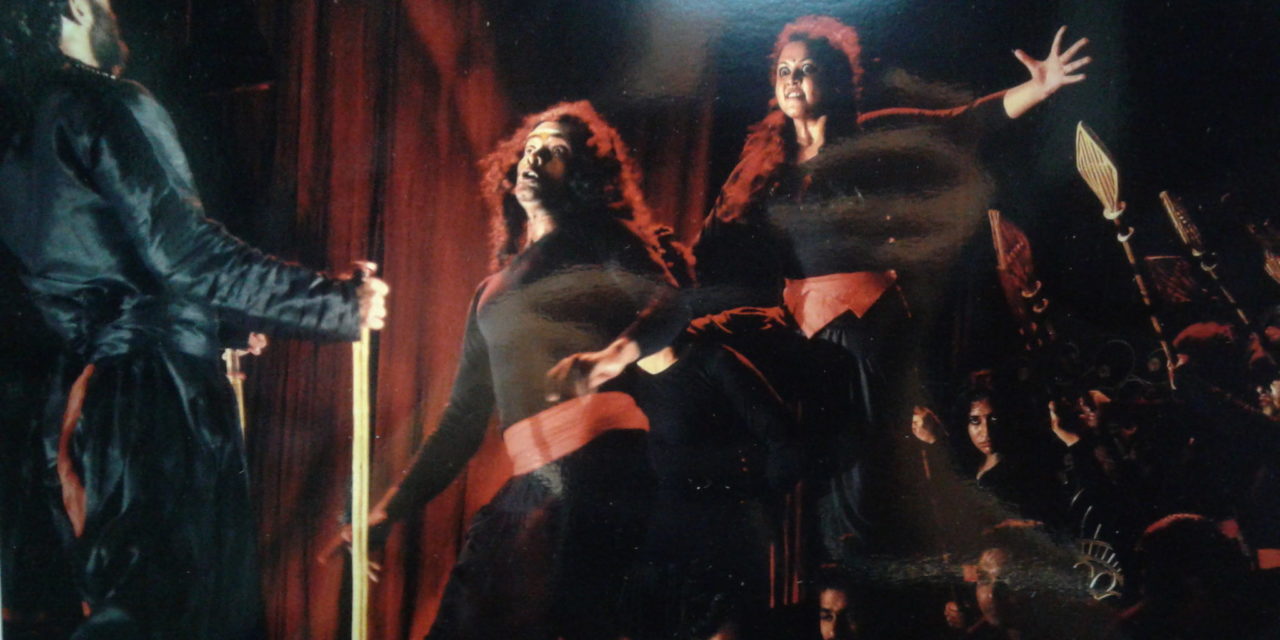Nandikar is a theatre-group of Bengal, which has almost four decades of experience to cash in on, numerous accolades and eulogies to flaunt and plethora of productions to its credit. But, this time, on the 9th of January, Rudraprasad Sengupta and his full team was struck with electrifying fervour to perform a rare kind of play, in which the life of Lord Krishna stood narrated in every detail, straight from the dancing boy, wooing Radha to the astute politician who decided the fate of Indraprastha, by sending his 10, 000 Narayani Sena [the soldiers of Lord Narayana alias Lord Krishna] to Duryodhana and himself joining the cause of the Pandavas. The battle of Kurukshetra which needed keen intelligence and sharp wit saw Lord Krishna as a quick-witted politician rather than the lover of Radha, who used to see Radha everywhere almost in every woman, even in his graying times.
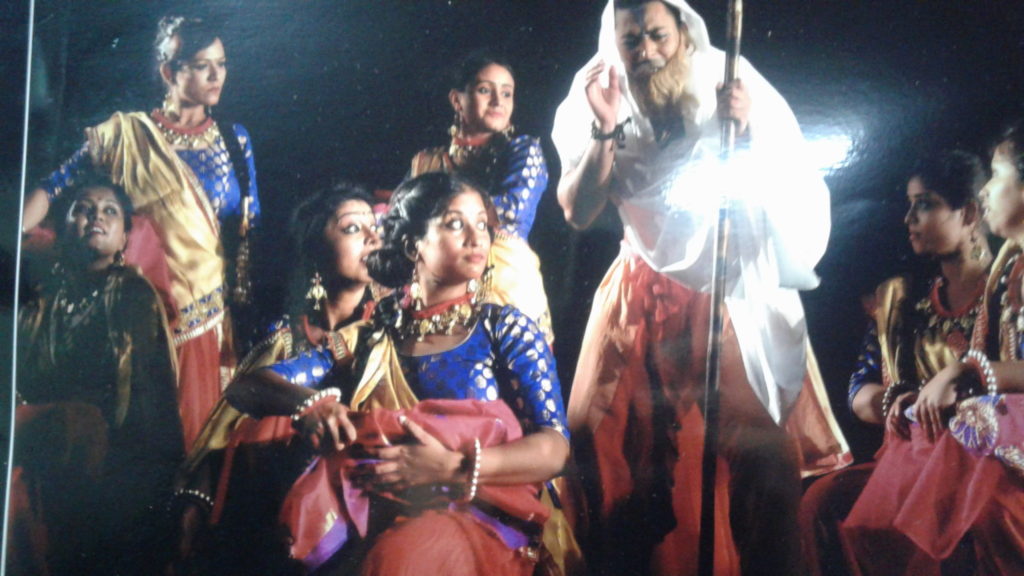
Nandikar Theatre’s performance of The Life of Lord Krishna. Photo courtesy of the Company
The trajectory of the story is large and spans from the defeat of the Kauravas in the Kurukshetra War to the affliction of a father on seeing his son, turning into a lecher to his own sad demise in the hands of an archer, who mistook his feet to be a bird flapping its wings. The play opens with the wailing of Gandhari, the blind wife of Dhritarasta and the mother of hundred sons, all of whom lay dead on the battlefield. She blames Krishna for the disaster and curses him to face the same fate, losing his sons to ignominy.
Though a musical, occasional dialogues exchanged among the characters are meaningful and direct. The roles played by the young Krishna and the adult one deserve special mention. Radha, Rukmini, Draupadi—all played by Sohini Sengupta, the director of the present play need special applause. The mindless use of masks, somewhat erratic use of floodlights and the unnecessary overlapping of scenes could have been avoided or taken care of.
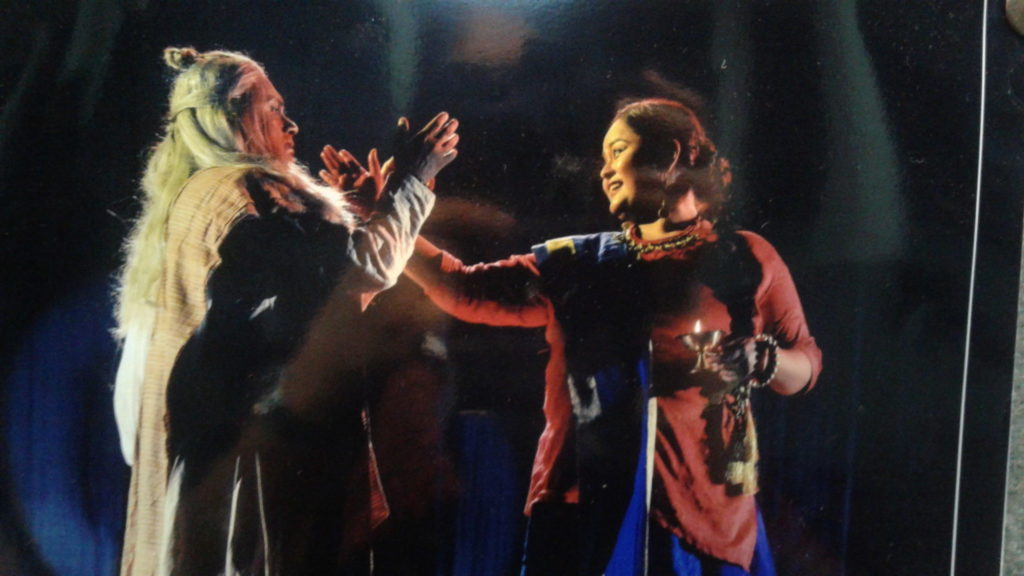
Nandikar Theatre’s performance of The Life of Lord Krishna. Photo courtesy of the Company
It cannot be gainsaid, that, Swatilekha Sengupta [Gandhari] and Rupdraprasad Sengupta[Jarasandha] still are the best and competent crowd-pullers. The political scenario of the times are brought in, particularly the time when Kangsha, Jarasandha and Sishupal were making the situations of the-then Bharat [India] more critical. It is really interesting to note, how Krishna rose to action when the affairs were giving way to the worst. But, as the epic lessons lead one from mundane riches to spiritual salvation, this play is no exception too. Shamba, the son of Krishna, learned to go astray by having recourse to all kinds of misdoings, and, Krishna’s imprecation turns him sick and devoid of his virile grandeur. And, lastly, Krishna has to succumb to the ultimate demand of the Eternity: Death!
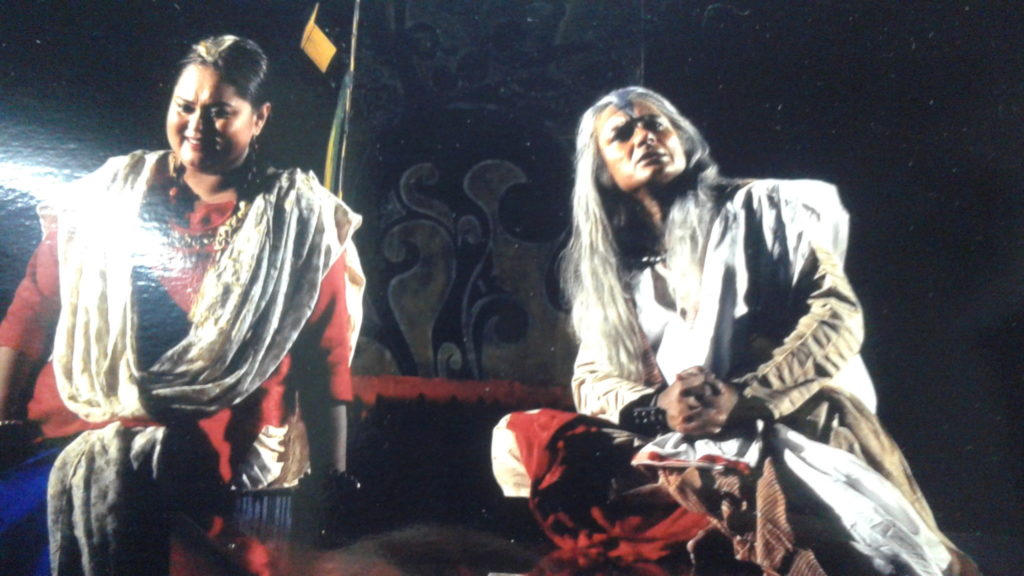
Nandikar Theatre’s performance of The Life of Lord Krishna. Photo courtesy of the Company
It is so unnerving to watch the Cult-God of the Hindus to die on stage, haltingly, that it sends shudder through the spines of the audience. However, the verisimilitude of the scene can deserve a big hand for both the director and the assistant director, Parthapratim Deb. Overall production, though a bit lengthy, is praiseworthy. Kudos to Nandikar for such a bold and timely production which also has pointed out the problems of the present era! No doubt, the play brings the past and the present to shake hands on the same pedestal. Panchajanya, the conch-shell which Krishna had blown during the War of Kurukshetra is significant in bringing out the latent desires in man: winning a battle, enjoying life to the hilt, win the love one dreams, so on. And, the play achieves all the dreams that could have been cherished.
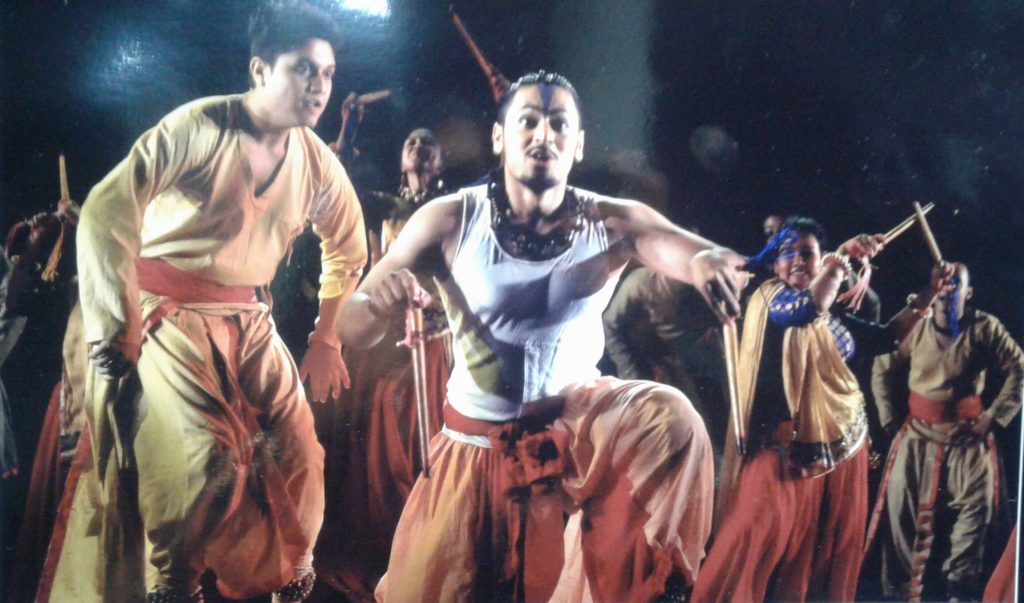
Nandikar Theatre’s performance of The Life of Lord Krishna. Photo courtesy of the Company
Nandikar is a theatre group of Bengal which had come to take the stage by storm in the 1970s with its timeless, memorable productions like Football, Pheriwalar Mrityu (inspired by Death of A Salesman by Arthur Mille), Sojan Bandhiyar Ghat, Nachni, so on, so forth. It was founded by the noted actor-director Ajitesh Bandyopadhyay , following whose demise, Rudraprasad Sengupta, his ally, took the onus of directing the plays and arranging regular workshops across the country and abroad. Even after forty years of glorious journey, the group is still going strong, belting out new and newer productions, one after another, with perfect elan. Nandikar is a name in the world of stage performance in India lately.
This post was written by the author in their personal capacity.The opinions expressed in this article are the author’s own and do not reflect the view of The Theatre Times, their staff or collaborators.
This post was written by Ketaki Datta.
The views expressed here belong to the author and do not necessarily reflect our views and opinions.

